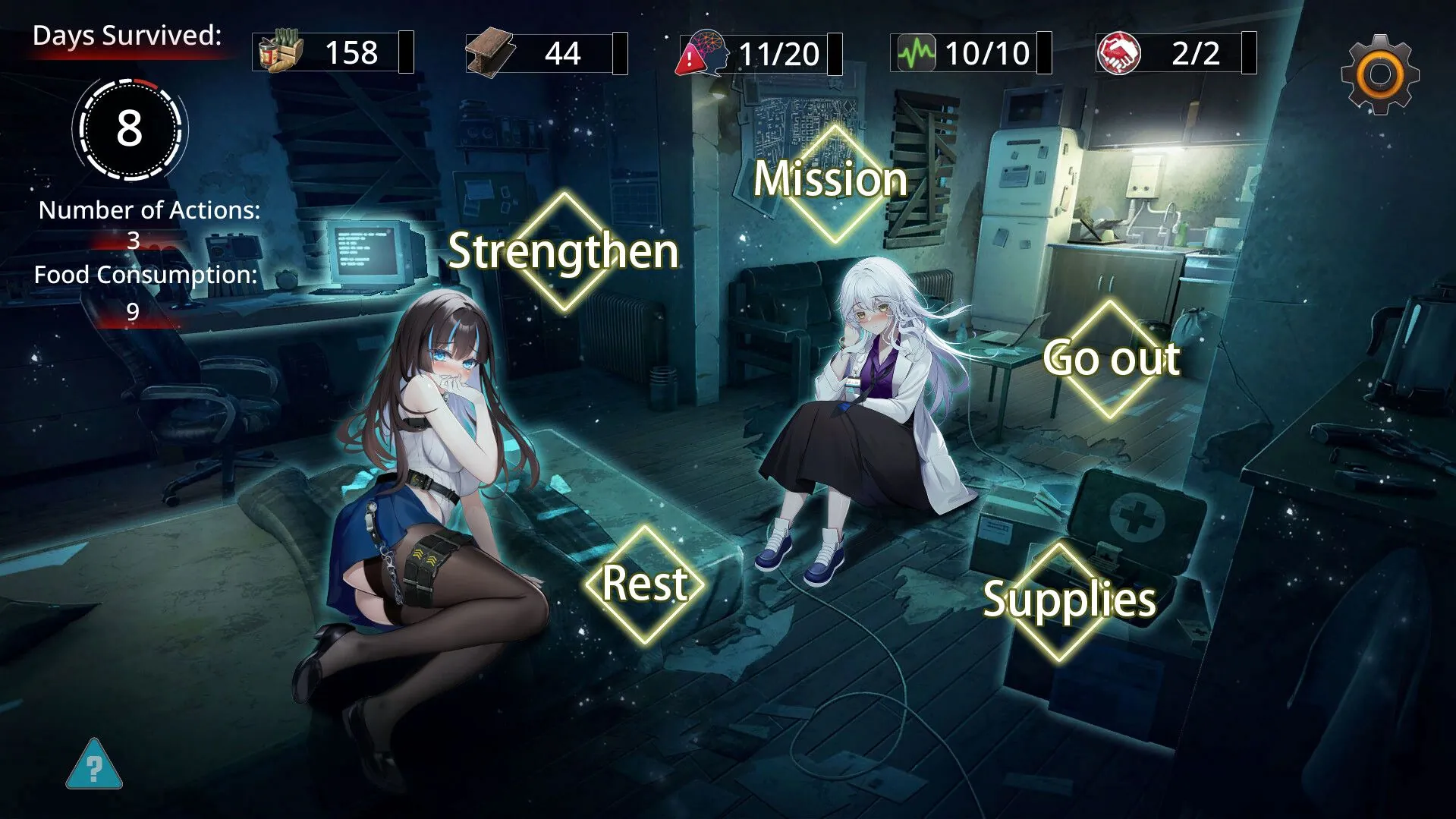
Parental Love
Play Parental Love
Parental Love review
Exploring the Story, Gameplay, and Player Insights of Parental Love
Parental Love is a distinctive interactive game that has captured attention for its complex narrative and immersive gameplay. This article explores the core elements of Parental Love, diving into its storyline, character development, and player engagement. Whether you’re curious about its themes or want to understand the gameplay mechanics, this guide offers a comprehensive look at what makes Parental Love a unique experience in its genre.
Understanding Parental Love: Storyline and Themes
Ever found yourself scrolling through endless game titles, wondering if any of them will truly make you feel something? 🤔 I know I have. Most games are about power fantasies or quick thrills, but every so often, one comes along that aims for something deeper, something more human. That’s exactly what you get with Parental Love. It’s a narrative experience that pulls you into a world of complex emotions and difficult choices, making you question what you’d do in the same situation.
So, what is Parental Love game about? At its heart, it’s a story about rebuilding a broken family. It’s not your typical adventure; it’s a slow-burn, character-driven journey that prioritizes emotional connection over action. If you’re looking for a game with a powerful Parental Love narrative that stays with you long after you’ve closed the game, you’ve come to the right place. Let’s dive in.
What is the central plot of Parental Love?
The Parental Love game storyline is a masterclass in grounded, emotional storytelling. You play as a father who returns home after a long and unexplained absence. 😥 You’re a stranger in your own house, facing a wife who is rightfully wary of you and two daughters who have grown up without you. The central plot isn’t about defeating a villain; it’s about mending the fragile trust you shattered and navigating the incredibly awkward and painful process of becoming a family again.
The Parental Love plot summary revolves around your daily interactions. You’ll get a job, help around the house, and most importantly, talk to your family. Every conversation is a choice. Do you push for information about the years you missed, potentially upsetting everyone? Or do you stay quiet, hoping time will heal the wounds? The game’s brilliance is in these small moments. A pivotal moment for me was trying to cook a simple breakfast for my eldest daughter, only to burn it and have her walk away in disappointment. 🙈 It wasn’t a game-over screen; it was a realistic setback in a long road to redemption. This Parental Love story analysis shows that the true conflict is internal—your struggle with guilt and your family’s struggle with forgiveness.
Who are the main characters and their roles?
The soul of this experience lies in its cast. The Parental Love characters are not archetypes; they feel like real people with distinct personalities, flaws, and hopes. Your choices directly impact your relationships with each of them, shaping the story’s outcome.
To help you keep track of this fractured family, here’s a quick profile of the key players:
| Name | Role | Description |
|---|---|---|
| The Father (Player Character) | The Returning Parent | A man burdened by a mysterious past and overwhelming guilt. His motivation is to reconnect with his family and earn a second chance, but his methods are entirely up to you. |
| Mary | The Wife | Rightfully hurt and skeptical. She’s protective of her daughters and isn’t quick to forgive. Rebuilding trust with her requires patience, honesty, and consistent effort. |
| Mina | The Eldest Daughter | A teenager who is outwardly rebellious and angry about her father’s absence. Beneath the tough exterior is a vulnerable young woman craving stability and love. |
| Katie | The Youngest Daughter | More open and curious than her sister, but still confused and shy around the father she doesn’t remember. She often represents a glimmer of hope for a fresh start. |
Understanding these Parental Love characters is crucial. You can’t treat them all the same. Mina might respond to blunt honesty, while Katie needs a gentler approach. Mary will see through any attempt at a quick fix. 🎯 The game forces you to think about their individual perspectives, making your relationships feel earned and authentic.
How do themes shape the player experience?
The Parental Love themes are the engine of the entire game. They’re not just background ideas; they are the very fabric of the gameplay and the source of its emotional weight. This is where the game truly shines and offers a unique experience.
-
Redemption and Forgiveness: This is the big one. 💖 The game constantly asks: Can people truly change? Is some damage beyond repair? You are actively seeking redemption, but the game doesn’t guarantee you’ll get it. This creates a powerful sense of stakes—every interaction matters.
-
Communication and Vulnerability: The gameplay is built on talking. The Parental Love narrative emphasizes that real connection requires being open and vulnerable, even when it’s painful. Choosing the right dialogue option isn’t about finding a “correct” answer; it’s about expressing yourself authentically and dealing with the consequences.
-
The Weight of the Past: Everyone is haunted by the years you were gone. 🕰️ Your family has built lives without you, and your return disrupts their new normal. The game explores how the past informs the present and whether it’s possible to move forward without fully confronting what happened.
These Parental Love themes influence the player experience by making you complicit in the story. You’re not just watching a drama unfold; you’re in the driver’s seat, making the tough calls. I remember one evening in the game where Mary asked me point-blank where I had been. I had a choice: lie to preserve the fragile peace or tell a painful truth and risk destroying everything. I chose the truth, and the resulting argument was one of the most raw and authentic moments I’ve ever experienced in a game. It was heartbreaking, but it felt real. That’s the power of this game’s storytelling.
The Parental Love story analysis reveals a game that is unafraid to sit in uncomfortable silence and explore the messy, complicated nature of family love. It’s a slow burn, but that’s the point. Trust isn’t built in a day, and neither is a compelling story. By focusing on these deep, relatable themes, Parental Love creates a profoundly immersive and emotionally resonant experience that is far more than the sum of its parts. It’s a game that challenges you, stays with you, and ultimately makes you reflect on the importance of the connections in your own life. ✨
Parental Love offers a rich narrative and engaging gameplay that invites players into a deeply emotional and thought-provoking experience. By understanding its storyline, characters, and themes, players can appreciate the unique qualities that set this game apart. Whether you are exploring it for the first time or revisiting its complex world, Parental Love continues to offer meaningful interactions and storytelling. Dive in and discover the layers that make this game memorable.











